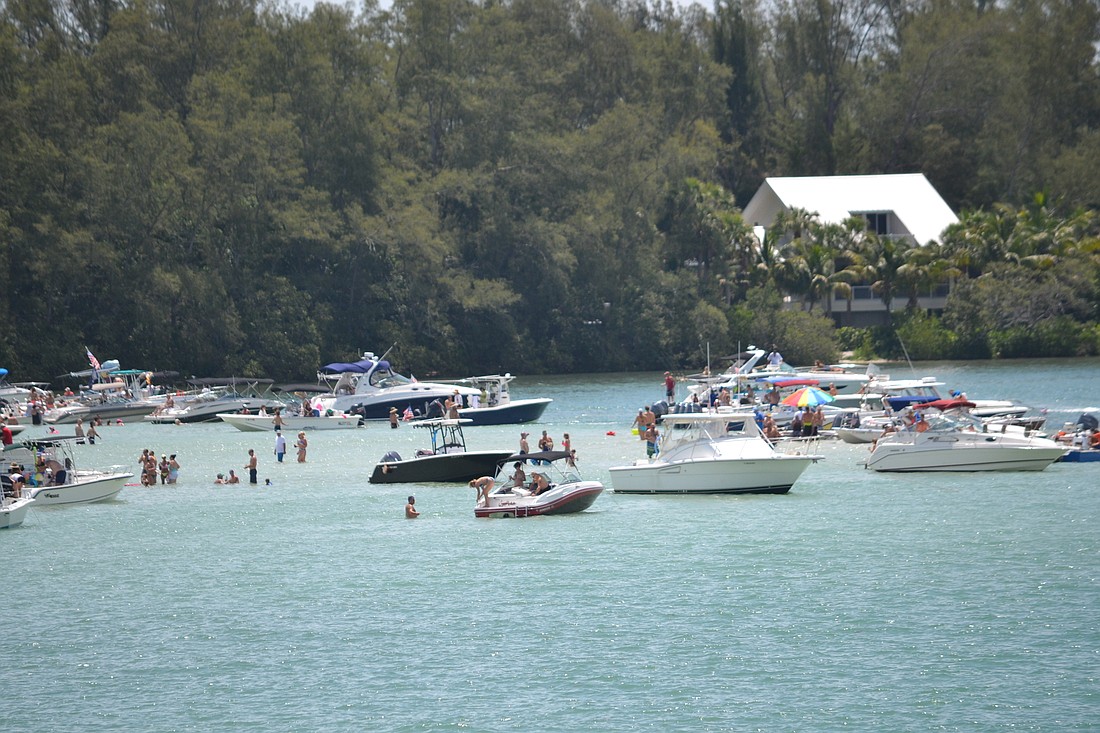- December 18, 2025
-
-
Loading

Loading

It’s official: The town doesn’t have the authority to police noise violations from boaters even inches from the shores of Longboat Key.
Well, sort of.
Last week, the office of Florida Attorney General Pam Bondi issued an opinion declaring that the Florida Fish and Wildlife Conservation Commission — the state — has jurisdiction of the entire Intracoastal Waterway. Although the opinion isn’t a court precedent, it could derail a debate on establishing decibel-based noise restrictions that town commissioners intended to discuss this fall.
“If we did decide to go forward on something like this, this is something opposition could bring out against us,” said Town Attorney Maggie Mooney-Portale, who in a May 3 memo to Bondi’s office asked for the opinion about whether the town could regulate noise levels.
That decision grew out of an ongoing discussion between commissioners and staff about a potential ordinance that would establish decibel levels and zones with different thresholds. The town considered purchasing equipment that would cost up to $75,000 for officers to measure those proposed levels during enforcement. The initiative was targeted at noise from boaters partying on the shoal of Jewfish Key, Mooney-Portale said.
“You can’t appeal an opinion, but you certainly could go through other avenues of forcing a court challenge,” she said. “But the question is how important is getting that determination, and on the spectrum of other issues the commission is facing, how important this authority is.”
Currently, the Key’s municipal code rules that noise that’s “plainly audible, an annoyance and a disturbance” is illegal, Mooney-Portale said.
“No person shall make, cause, allow or permit to be made any unreasonable sound within the geographical boundaries of the town or within those areas over which the town has jurisdiction, including the waters and beaches adjacent to, abutting or bordering the town,” the town code states.
An officer can issue a warning if the sound violation is plainly audible from the complainant’s property. If it’s not corrected within 15 minutes or if it happens again within the next year, the officer can issue a citation.
Bondi’s opinion would render those regulations moot around Jewfish Key.
“It would be a difficult thing to organize a lobby to try to change the state law, because it seems the boaters are as strong as the NRA in terms of their ability to lobby.” — Commissioner Ed Zunz
Commissioner Ed Zunz, who lives in Lands End at the north end, said he understands why the state would want to pre-empt things like motor noise, so boaters can adhere to a single set of regulations as they ride the coastline.
“But you would think that with something like people blasting their radios, the state would have no particular interest in regulating,” Zunz said.
Still, the Longboat Key Police Department last issued a notice to appear to a boater on the shoal about two years ago, said Police Chief Pete Cumming. He and Mooney-Portale agree that the recent addition of a new police boat on the water, and therefore, increased law enforcement presence, has naturally decreased instances of noise complaints from the north end.
Mooney-Portale said Bondi’s ruling was broad, noting the area cited as the Gulf Intracoastal Waterway includes municipalities from Anclote Key near Tarpon Springs south to Fort Myers — an area that stretches through five counties and dozens of towns and cities.
Town officials will likely meet with representatives from other municipalities to consider options for challenging the opinion.
“We’re going to get together and create a unified front on this thing to see if we can make a change,” Cumming said. “There are going to be some people who are affected by this who are going want some answers.”
As for state laws, such as boat speeds and no-wake zones, Longboat police will still have enforcement authority. But Cumming wants to make sure the town can formally cite vessels for violating town ordinances.
“It’s a matter of keeping the peace for our residents, and we will maintain keeping the peace.” he said. “If need be, we’ll send a test case through.”
Still, Zunz is skeptical that boaters will sit by idly and give up the state pre-emption.
“It would be a difficult thing to organize a lobby to try to change the state law, because it seems the boaters are as strong as the NRA in terms of their ability to lobby,” he said.